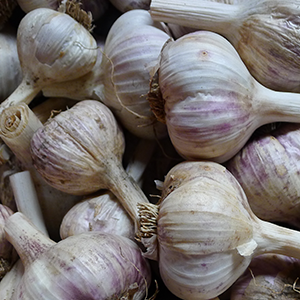
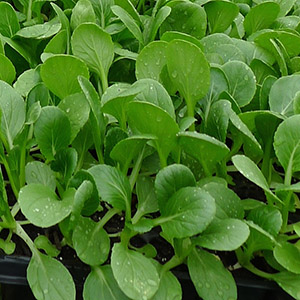
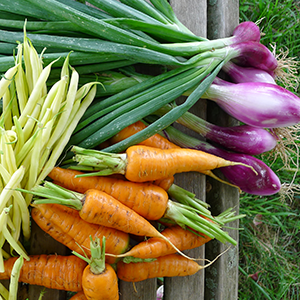

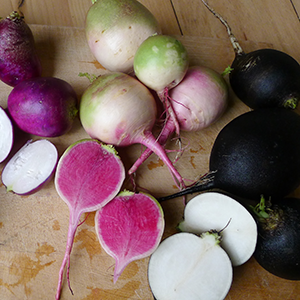
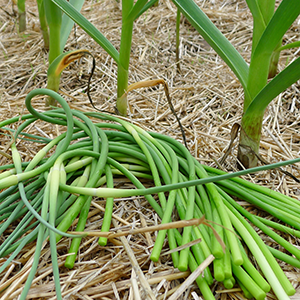
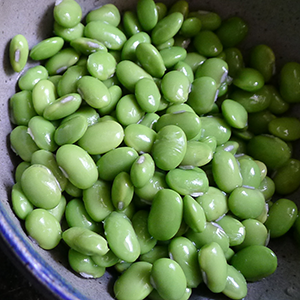



News and Notes | The Anchor Run Blog
Displaying a Single Post |
Show Recent Posts
October 4, 2020
Awesome Autumn!
by Farmer Derek
Awesome Autumn!
by Farmer Derek
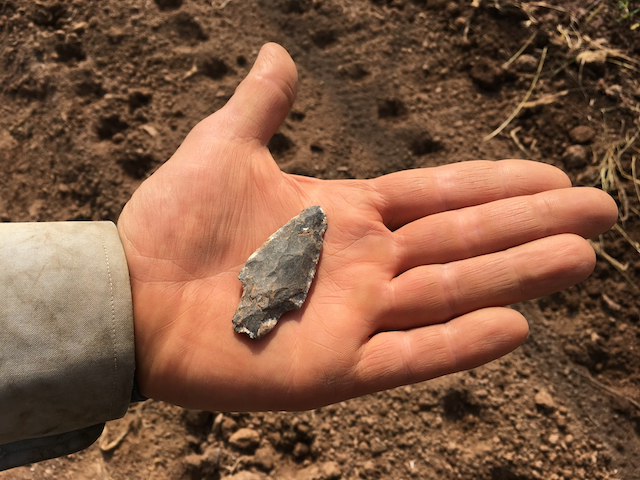
First find of its kind in 38 years. Pretty stoked to unexpectedly happen upon it in while getting ready to transplant in the hoop house.
We're very appreciative of last week's dose of rain. With plenty of days of dry weather before and forecast for after, the 2.5" of precipitation was just enough to ward off any need of adding water to the fall crops. In fact most crops look to be in a blessed state of balance at the moment. These weather conditions are pretty much just perfect for our fall crops, on our farm, with our soil types. We really don't need much rain here, especially for the bare ground crops, and definitely this time of year with reduced temperatures and length of daylight. Even at the end of that two-week dry spell with low humidity and a few high wind days crops were still luscious, green, and perky.
Even with wonderful outside weather our attention is shifting towards indoor production. We're quickly filling tunnels with crops that will be harvested in November, December, and beyond. Last week we transplanted lettuce mix and arugula into the hoop house; kale and bok choy into the hoop tunnel; and spinach into one of the caterpillar tunnels. The week prior head lettuce, lettuce mix, and chard filled up another of the new caterpillar tunnels. Three quarters of the hoop tunnel and the green house are all that is left. These will be planted over the next two to three weeks.
Before last week's big day of rain on Tuesday we sowed the final round of cover crops on areas that were home to winter squash, u-pick tomatoes, eggplant, okra, and sweet potatoes. I used a mix of oats and rye. Oats should die off during the winter if it gets cold enough. Rye should over winter, aggressively and tenaciously growing through springtime. In the past we've had stands of rye reaching 5-6' in height on fallow fields. That's a tremendous amount of organic matter subsequently incorporated into the soil biome. We'll only let it get that big if we're certain we won't need that space for a 2021 crop and can rest it until 2022. Rye is said to be allelopathic and could negatively affect following crops, but it could also be from the plants having soaked up much of the available nutrients which aren't released until the plants sufficiently break down. This is one reason we've embraced 'winter-killed' cover crops. They leave the soil in a more user-friendly state for spring and early summer planting. Rye is advantageous if we fallow a field or if we won't use it until mid-summer or later.
Hope you're able to enjoy this great weather!

POSTS BY TYPE
POSTS BY MONTH

